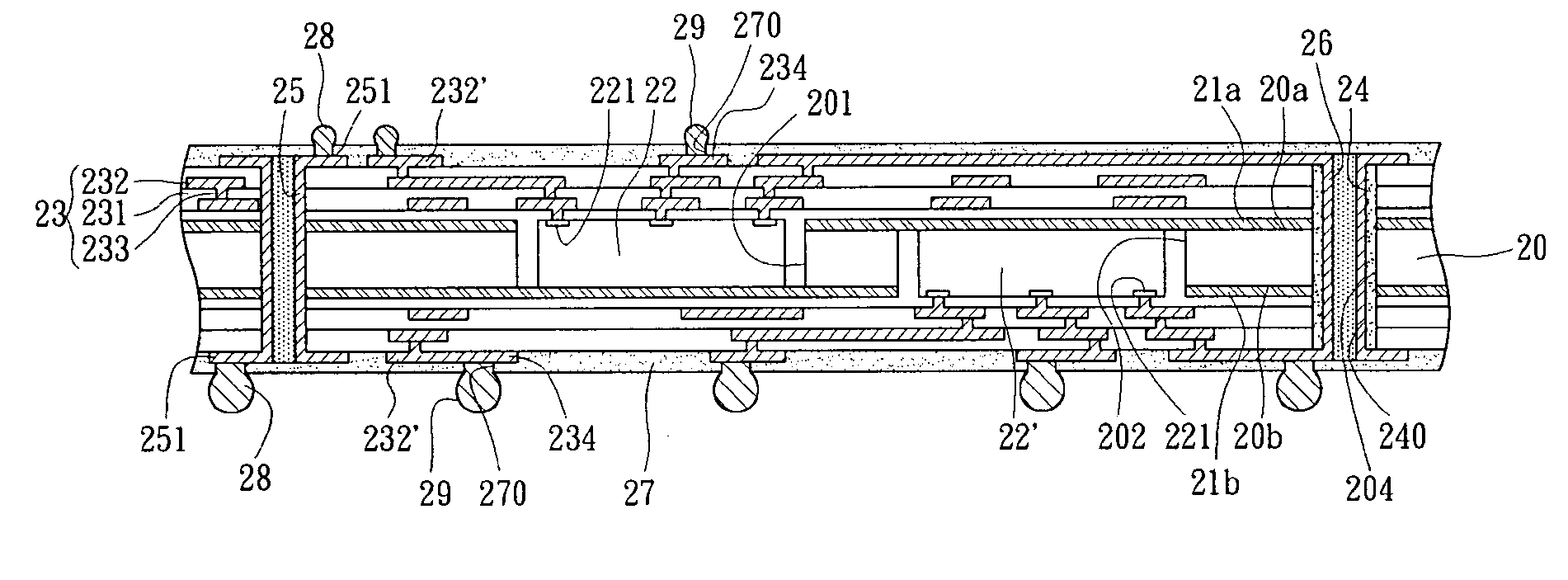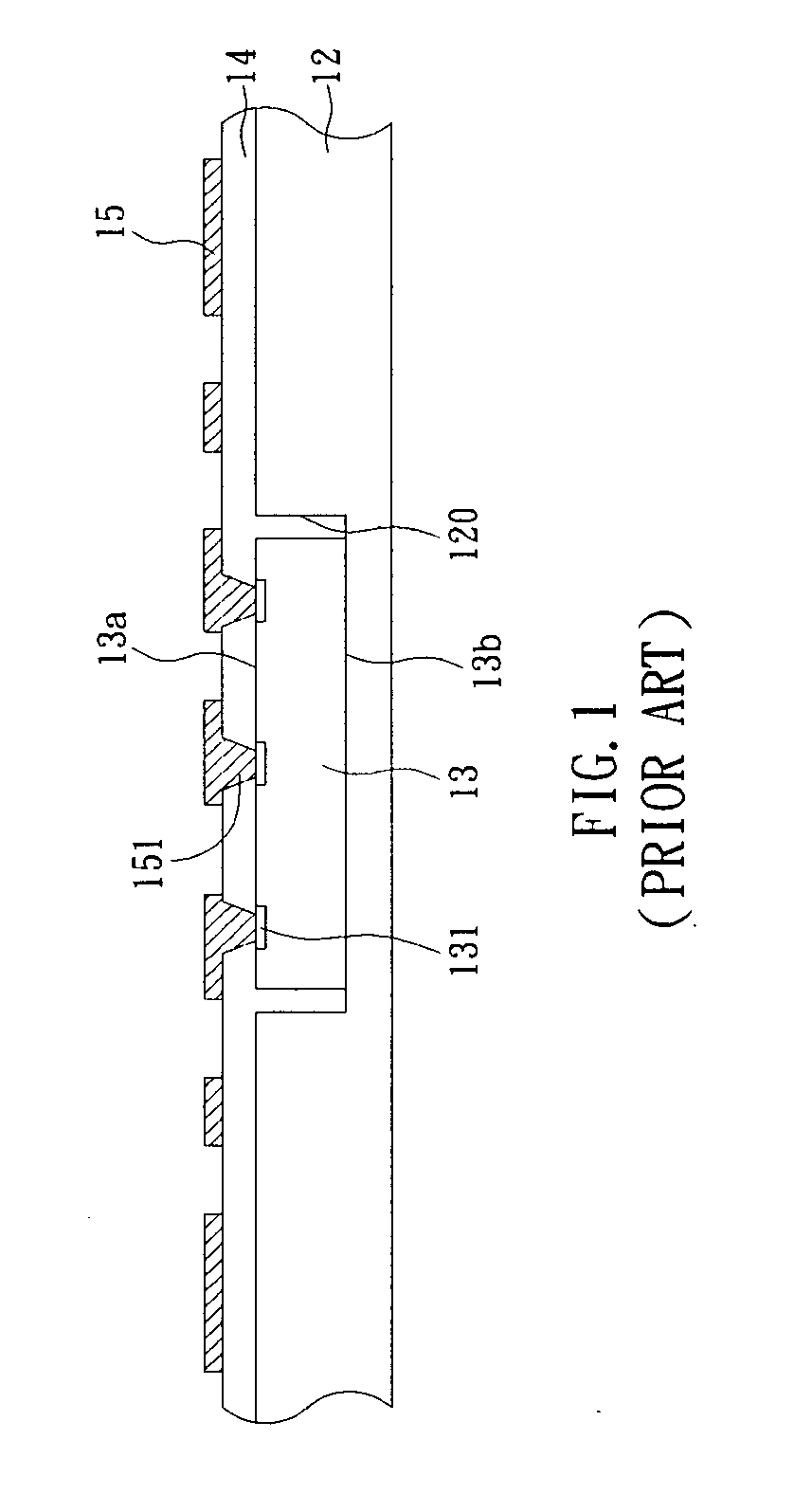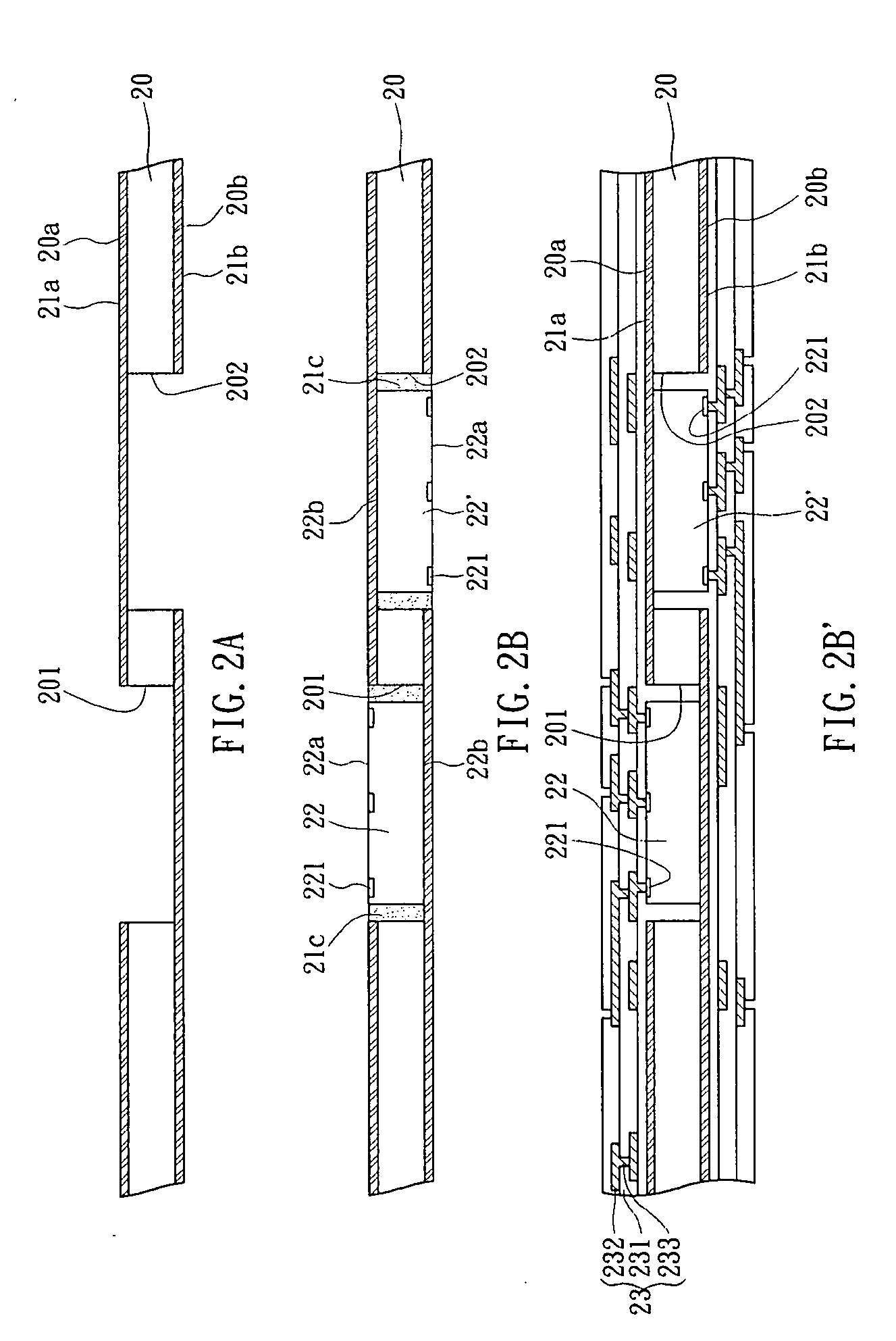Packaging substrate having heat-dissipating structure
a technology of packaging substrate and heat dissipation structure, which is applied in the direction of semiconductor devices, semiconductor/solid-state device details, electrical devices, etc., can solve the problems of shortened service life of semiconductor chips, deterioration of performance, and hardly conducive to miniaturization and improvement in performance in the early stages of the art, so as to enhance heat dissipation, enhance heat dissipation, and reduce the effect of heat loss
- Summary
- Abstract
- Description
- Claims
- Application Information
AI Technical Summary
Benefits of technology
Problems solved by technology
Method used
Image
Examples
first embodiment
[0026]FIGS. 2A to 2F are cross-sectional views showing a first embodiment of a method for fabricating a packaging substrate having a heat-dissipating structure according to the present invention.
[0027]Referring to FIG. 2A, a core layer 20 such as a copper claded laminate (CCL) is provided. The copper claded laminate essentially comprise a composite board composed of an insulating layer sandwiched in between two copper foils. The core layer 20 has a first surface 20a and an opposite second surface 20b. The first surface 20a has a first metal layer 21a. The second surface 20b has a second metal layer 21b. A first cavity 201 is formed to penetrate the core layer 20 and the first metal layer 21a, thereby exposing the second metal layer 21b. A second cavity 202 is formed to penetrate the core layer 20 and the second metal layer 21b, thereby exposing the first metal layer 21a.
[0028]Referring to FIGS. 2B and 2B′, semiconductor chips 22, 22′ are received in the first cavity 201 and the sec...
second embodiment
[0036]FIGS. 3A to 3C are schematic views showing a second embodiment of a method for fabricating a packaging substrate having a heat-dissipating structure according to the present invention. The second embodiment differs from the first embodiment in that, in the second embodiment, conductive terminals (golden fingers) configured for use with expansion cards and expansion slots function as the conductive pads.
[0037]Referring to FIG. 3A, the structure shown in FIG. 2E is provided, wherein the outmost wiring layer 232′ of the build-up circuit structure 23 has a plurality of conductive pads functioning as conductive terminals (golden fingers) 234′.
[0038]Referring to FIG. 3B, an insulating protective layer 27 is formed on the surface of the build-up circuit structures 23, and a plurality of openings 270 are formed in the insulating protective layer 27, thereby exposing the conductive terminals 234′ and the contact pad 251.
[0039]Referring to FIG. 3C, a heat-conduction component, such as a...
PUM
 Login to View More
Login to View More Abstract
Description
Claims
Application Information
 Login to View More
Login to View More - R&D
- Intellectual Property
- Life Sciences
- Materials
- Tech Scout
- Unparalleled Data Quality
- Higher Quality Content
- 60% Fewer Hallucinations
Browse by: Latest US Patents, China's latest patents, Technical Efficacy Thesaurus, Application Domain, Technology Topic, Popular Technical Reports.
© 2025 PatSnap. All rights reserved.Legal|Privacy policy|Modern Slavery Act Transparency Statement|Sitemap|About US| Contact US: help@patsnap.com



